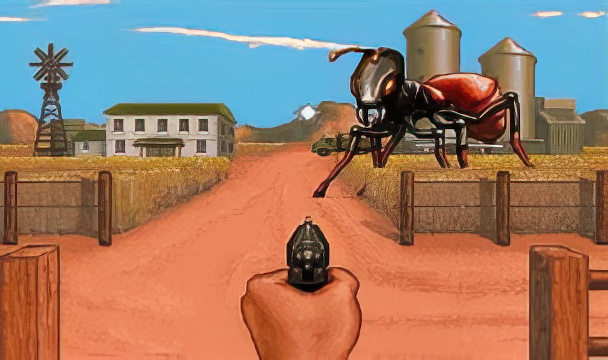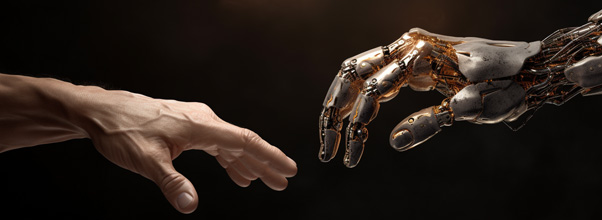When I landed my first job in the video game industry in the mid-2000s, I soon realized that there was a caste system in place in the various game dev disciplines. Programmers were at the top, followed by artists, followed by producers, and lastly followed by designers. The salary structure back then bore this out with a vast pay gap between the top and the bottom.
Part of the reason for the existence of this hierarchy is that computer programming is an accredited science. If you can code for video games, you can code for any industry. Artists are also accredited but have the additional benefit of visual portfolios. Both programmers and artists can leverage work experience and build portfolios that demonstrate their capabilities and justify their salaries.
At that time, game designers had no accreditation process. Game design was only beginning to be taught at local colleges and you could not earn a college degree in game design. I recall conversations that I had with veteran game designers and they told me that coders and artists looked down on designers because they truly believed that anyone off the street could design a game. This resonated with me because at the studio I worked for, being a game designer felt very much like being a 2nd class citizen. It didn’t help that certain programmers were smug assholes who felt like it was beneath them to acknowledge my existence.
A History Lesson about a Galaxy Not So Far Away…
Historically, programmers have had a chip on their shoulders. As far back as the earlier video games such as the coin-op Pong, Atari 2600 games, Amiga games, and others, coders were the only people capable of making video games. They had all the power and they knew it.

Graphic user interfaces such as Macintosh and Windows did not exist back then. Given this reality, coders were the designers and artists. They held all the power and the industry evolved with coders at the top, artists in the middle, and designers at the bottom of the game dev totem pole.
Graphics were very primitive back then as well. Due to these limitations, pixel art was all that primitive computers could create. Tools like CorelDRAW and today’s industry-standard Photoshop were not invented until the late 90s and there was no need for all of the art assets that are in video games today. The 3D graphics that we all take for granted today, were simply not technically possible back in those days.
The problem with programmers/coders/engineers is that their personality type is not conducive to good game design. The engineer/coder personality archetype is analytical and is not inherently creative. This is a truism across all areas of product development, not just video games.
If you are in the creative industry, it only makes sense that people who are tasked with being creative have personalities that are conducive to creativity. Forty years ago, this was not the case. The coders ran everything because they were the gatekeepers of the video game industry. Even in 2023, this is true of the very best coders.
The Era of the Game Designer is Upon Us
With the light-speed advent and integration of artificial intelligence (A.I.) into game dev platforms like UNITY, the dominance of coders and artists will soon be coming to an end and that is a very good thing.
Game designers and gamers (who aspire to be game designers) will be able to create their own code and art assets with A.I., they will be able to create their own tools too. No longer will game designers be beholden to coders, artists, and the video game industry.
Introducing UNITY Muse
One big player in the arena of game development, UNITY, has been working on A.I. for the past 5 years. Soon they will be launching an A.I. product called Muse which is currently in beta.
Here are two recent promotional teaser videos for UNITY Muse:
These promotional videos speak for themselves.
UNITY is Going Full Speed Ahead with A.I. Plugins
A revolutionary tool called SparkAI is already available in the Unity Store. It allows you to integrate ChatGPT to create NPC dialogue.
Former EveQuest coder and indie game booster Jason Weimann just released a video where he discusses all the various A.I. plugins and tools that are now available in the UNITY store:
Insightful UNITY CEO Interview
Jason recently conducted an hour-long interview with UNITY CEO John Riccitiello. During the interview, it soon becomes apparent that UNITY believes in A.I. is the future of game dev and has been working on it for many years.
John makes a good point that A.I. will take its rightful place in the pantheon of paradigm shifts in the industry. These are the introduction of 3D video cards, the Internet, and mobile.
With UNITY embracing A.I. you can be sure that Unreal Engine will not be far behind.
In addition, millions of dollars have been invested in A.I. startups that are specifically created to produce game assets. These are Leonardo, Scenario, and others. It is not unreasonable to believe that investors of these companies will protect their investments and face any and all legal challenges from disgruntled artists head-on.
No matter if you love it or hate it. A.I. is not going away.
How I use A.I. In my Indie Game Studio
In my own self-funded studio, I am using A.I. for all character and environmental concepts. I will also be using A.I. to train custom models using the assets that my team of artists has created specifically for my project. I plan on using A.I. for all of the voice acting as well as story development. As development platforms like UNITY launch Muse and other new A.I. tools, I will be fully embracing A.I. to create tools and code for my game.
I am also currently using the new generative tool in Photoshop beta to create basic environmental generative content. This tool learns the style from our signature artwork style and replicates it. It is absolutely amazing and it will become part of Photoshop in the very near future.
A.I. Ubiquity Will Signal the End of Large Woke Studios
In 2023, the price of admission to make a serious video game or MMORPG is far too high and prohibitive. This creates a serious problem in that only a handful of powerful and connected people — those in big corporations — end up dictating what video games are allowed to be made.
The fact that corporations are making games and not gamers, is why most AAA video games suck.
Drunk on unearned power, these low-testosterone soy-slurping masters of the universe are no longer concerned with making good video games and instead are obsessed with wokeness and social activism i.e. whatever their domineering Instagram-obsessed feminist wives are whispering in their ears. We see the exact same problem currently plaguing the film industry.

The ultimate silver lining of A.I. is that democratizing game development will open the floodgates of competition, and as a result, large woke studios will eventually go out of business. A.I. will help to create a more level playing field for game designers, indie game studios, modders, and gamers who want to become game designers without any of the ideological baggage that comes with being part of a large corporation.
In addition to this, they will not have to endure 20 years of slogging away working for soulless video game studios working on games they hate, just to build up experience, hoping they get promoted, so they can finally make games that they want to make.
Bloated corporate video game monstrosities will wither away and the millions of dollars of corporate largesse that are spent on wasteful diversity, inclusion, and equity initiatives will no longer exist. Race hustlers and LGBTQ grifters will no longer be coddled and pandered to. Anyone will be able to start their own video game company and release games that they have created without having to pay millions of dollars in brick and mortal expenses and salaries for coders, artists, producers, and others.
The Moral Panic Created by A.I. Luddites
Since the advent of generative art, a sense of moral panic has taken over the activist branch of the art and coder communities. Artists especially, are people who are prone to emotionalism and hysteria. Typically, they are the game devs with pronouns, Ukraine and pride flags in their Twitter bios.
They believe that the rise of A.I. will cost them their jobs and they feel the government should step in. Some have even filed lawsuits. However, I believe these fears are largely unfounded. A.I. is a tool that increases productivity and enhances creativity. There is no doubt that they would have made similar arguments about horse and buggies, stable boys and blacksmiths being put out of work by the mass adoption of the automobile.
I believe this fear has been weaponized by a few top digital artists. Sadly, most of the artists who are against A.I. are mediocre and will never have to worry about their work being stolen and modeled by A.I. companies. They are living vicariously through the rockstars in their field.
The Truth About Art
Art is an ever-evolving creative continuum because artists influence each other. Art is not all sunshine and roses, it is often fraught with disagreements, tension, factionalism, and gatekeeping. The true nature of creativity is to borrow from others and make it your own. If someone wants to combine the styles of Andy Warhol with Leonardo da Vinci, they should be allowed to do without being vilified as thieves.
Any artist who walks into a public art museum cannot help but be forever influenced by the art they see. You can’t unsee something. The human brain is modeling art all the time. No government can stop this.
Art students routinely visit art museums and sketch the works of the masters. Will this non-digital modeling be banned by the screeching A.I. Luddites as well?
Similarly, photographers should be able to take photos of whatever they see in public. They should not require permission, consent, or legal agreements authorizing their use by every single subject matter.
Change is scary for some. I have worked with contract digital artists that are not fond of A.I. I have told them that they need to embrace it or be left behind. I think it’s time to abandon the stifling “artist” title and use “creative” instead. If digital artists want to have any semblance of a future in game dev, they need to master A.I. and see it as a friend instead of an enemy. If they don’t, others will and they’ll be left on the sidelines, integrity intact but unemployed and irrelevant.
A.I. is Not a Panacea
There will be no magic A.I. button that you can simply press and make a clone of Angry Birds or Call of Duty. You will still have to know the fundamentals of good game design inside and out. You will still need to have an original idea. You will need to be a craftsman. You still have to create a design document. You have to have a vast knowledge and appreciation of art and aesthetics. You still have to have an appreciation for the user experience. You will still have the humility to put yourself in the player’s shoes. You still have to understand marketing and understand how to build communities for your game.
Every revolution has its share of charlatans and bandwagoneers. When punk rock and grunge rock became popular in their respective eras, many record labels signed anyone and everyone so they could release crappy fad music and cash in. The same thing will happen in the video game genre when A.I. hits critical mass. There will be unscrupulous hucksters that take advantage of A.I. and use it to produce garbage games. The law of the marketplace will deal with them swiftly enough.
Conclusion
What the printing press did for knowledge, A.I. will do for game development. Yes, this is a bold prediction, but I’m willing to bet on it. I strongly feel that artists and coders should look at A.I. with the glass half full instead of half empty. They should embrace it as a creative tool, just like Photoshop is a creative tool.
Finally, the creators and the dreamers — game designers — will be at the top of the heap. We will be fully in control and with the agency and autonomy to make whatever we see fit. Fatcat studio heads, woke producers, cranky coders, temperamental artists, and useless DIE officers will not be able to hold game designers hostage anymore.
Creativity will explode because creative people will finally have a chance to make their dreams come true without all the barriers, gatekeepers, overhead, and politics of the video game industry. All that will matter is the quality of the game and the player experience. Best of all, gamers will finally be able to find games that they want to play because they will be made by their brothers in arms: game designers.
Here’s a special shout-out to all of the useless frauds and pathetic hacks that have been living in the red stapler rooms of their tenured respective game studios and putting out a steady supply of mediocre crap, a day of reckoning will come for you. You and your merry band of imposters are in for a well-deserved rude awakening.
If anyone thinks this is a fevered pipe dream or a passing fad, they are mistaken. Change is coming at a pace that will make your head spin. I have been astutely following the mind-blowing advances of A.I. and generative art in the past 10 months and I have the fullest confidence that the future of indie game development will be beyond our wildest imagination.
–Wolfshead







It offers opportunities for small devs and big companies alike. I am thinking about Starfield and No Man’s Sky using procedural generation already.
There are issues with our current copyright though. The current tools like Midjourney etc. uses existing images to create theirs, when does it become a copyright problem and when not?
Also interesting is the fundamentalist approach Steam is taking on AI generated content. Maybe it also has to do with problems to copyright AI generated content?
I am not sure if this will truly end woke video game studios, they are rather self-defeating themselves sooner or later, IMO. While causing massive damage, unfortunately.
The woke dude photo, for some reason they always have a “can’t quite grow a proper beard” beard style. Clean shaven or well kempt is a no-go for some reason.
Apparently, Blizzard is developing their own in-house A.I. With 20 years of WoW content, they will be able to create art assets that are true to their style. Blizzard already uses cheap foreign labor to create much of their art. American artists are far too expensive to hire and almost always woke — that’s why I never hire Americans.
Midjourney is a consumer-level toy. It’s not a serious tool that can be used with any reliability for game dev. Yes, I use MJ all the time for blog graphics and as concepts but it’s not really made for game assets. MJ is essentially a woke cult run by a douchebag cult leader man-child named David Holz based in San Francisco. If I have time, I’ll do an article on MJ as well. I can spot an MJ-generated image a mile away.
Despite all the juvenile fearmongering, MJ is not going to put real artists out of business.
I plan on doing an article on the Steam anti-AI stance soon. I think Steam is extremely misguided on this issue. The dust has not even settled and they are hastily banning A.I.? Ridiculous.
If they do this, Unity will simply create its own digital distribution service and bypass Steam altogether.
Woke studios are already imploding. A.I. in the hands of game designers will hasten the process.
I didn’t know you were once in the gaming industry. That’s awesome. And yes I remember playing miles morales and having to get the platinum trophy really upset me because I had to do a mission that ended with a banner that said “black lives matter”. Pissed me off so much because that was just a front for a Marxist movement and nobody could see it except for the few that are in the know. Naughty dog upsets me as well because while they are amazing game designers, their recent dive into woke topics is really off putting.
I’m also an aspiring game dev and I was planning on using AI, but was having doubts due to ethics.
@AnonEntity
How do you explain procedural generation in Starfield and No Man’s Sky to be different from the level layout randomization in Diablo 2 or the Random Map Generation in Heroes of Might and Magic 3 and Age of Empires 2?
For me it feels exactly the same, just on a different scale. In D2, HoMM3 and AoE2 it uses a set of templates and randomizes and combines them. The only difference from the games you mention is that SF and NMS do it in realtime, whereas in the games I mentioned, it has to be done before loading the level.
But in the long run, even this can feel repetitive. I have played only a little of NMS and it felt very boring, I don’t know a lot about what procedural generation will do there, but unless it randomly generates NPCs, side quests, storylines and dialogue options, I don’t think it’s anything to be excited about.
There is a game on Steam called Wayward Realms made by the developers of TES2 Daggerfall who aim to create something similar but with modern graphics and part of the world, quests and NPCs will be randomly generated or procedurally generated.
The game is years away from release, but it feels promising to me to deliver something with a lot of replay value.
I’m sorry that the reply feature is not working properly. I’m investigating the problem.
@Jon
I believe the ethical issues will get sorted out within a year. AI is just too impactful and game-changing for it to be stopped by a few lawsuits. In the meantime, I would recommend using AI as much as you can. Learn it, experiment with it, master it.
You should also keep quiet about using it due to the ANTIFA psychopath wing of the artist community out there that is opposed to it.
In a few years, all of this will be moot as AI will be ubiquitous and non-controversial.
Hi Allwynd, NMS uses a “seed” for the whole 255 galaxies universe and every planet in it. The game then generates the exactly same planet and landscape and solar systems for everyone playing the game, it’s not saved on a per planet basis. It’s not AI and it is not random, it’s procedural.
You might have noticed I like Everspace 2, it recently added AI generated random banter/radio noise near starbases. Everything else is “hand made”, so I hope Steam doesn’t go crazy on them.
I am looking forward to Wolfshead’s article about Steam and AI. I am surprised and can’t quite explain their very strong anti AI stance. I don’t know if anyone from Valve commented on the why yet.
Great article! It’s fascinating to see how AI is revolutionizing the game industry and paving the way for a new era of game designers. The concept of AI-generated content opens up endless creative possibilities and could potentially redefine the gaming experience. It’s amazing to think about the potential of AI in game development, and how it might alleviate some of the challenges faced by woke video game studios. Exciting times ahead! Keep up the great work.
Best regards,
GPTOnline
Your comments about GUI’s and 3D graphics “not being possible back in those days” are woefully ignorant of the time. Point and Click games from the 80’s all had GUI’s, such as Enchanted Scepters from 1984, or Déjà Vu just a year later.
There were also precursors to photoshop. On the Commodore 64, you also ended up having numerous graphical tools, such as Advanced Art Studio. Ever heard of the demo scene?
3D graphics, which you state “simply were not possible”, already made headway in the late 70’s with tools specifically designed for 3D graphical design, and the first “3D” video game was Battlezone, released in 1980.
Coders were absolutely not king. One primary example of this would be the fact that Roberta Williams and her husband founded Sierra, and were the king of adventure games in the 80’s and early to mid 90’s, who did not know a lick about coding. Her games revolved primarily around puzzle design and writing.
Graphics had always been a major draw of the video game industry, and the artists responsible were in high demand when big names like LucasArts got involved, who went out of their way to hire Steve Purcell, an Art College graduate, to work as their head artist for Secret of Monkey Island. In fact, I would argue that the designers were the gate keepers back then since things were a lot more oriented towards innovating in how people played games and why they played them. Hell, John Tobias was half the genius associated with starting the Mortal Kombat franchise, and his absence was felt after he left, and almost every new character they introduced into the series looked and played like garbage.
Nowadays, it’s all about making quarterly earnings and having a good portfolio of IP’s at your disposal. The designer is less a “designer” and more just a corporate stooge who communicates what the executives wants down to the programmers and artists, unless you’re an indie developer/studio.
Besides those points, even back in the 70’s, you had the development of basic engines which allowed designers to develop their own games free of extensive programming language; the best example of these engines being the ZIL language, which Zork used, and which Infocom would use to develop all of their adventure titles.
It simply comes to the matter of this primary statement “coders were the only people capable of making video games.” – Which is patently untrue.
Thanks for your perspective. You simply had to own a Voodoo or 3DFX enabled video card to play EverQuest. Yes games like Ultima Underword, Wizardy, and Doom simulated 3D because they were dungeons. They weren’t true 3D games. It’s easy to make dungeons with no 3D card. It’s impossible to make 3D outdoor worlds without those cards I mentioned.
Incidentally, I worked with one of the artists who worked on Secret of Monkey Island for what it’s worth. Super talented dude, he was so incredibly talented they let him work from home. But this was in the 2000s.
Thanks for acknowleding the contributions Roberta Williams and Sierra. I would mention the first few years of Electronic Arts as well as being idea and design centric.
Coders were the only people making video games in the early stages using assembly language because they were the only ones that could. Eventually, they hired designers. Designers becamme designers of out sheer necessity. On the projects I worked on there was 4 coders for every designer. You can make a video game with only a coder. You can’t make a video game with only a designer.
Thanks for all this information. I don’t know everything. My articles are based on my experiences in the video game industry and my observations.
Just to add to Mephisto’s point above, even those coders who attained legendary status in the industry didn’t get there because they were the best coders of their generation. It was always about idea, design, and concept, not technical limits. Literally any programmer can code Tetris. Most could make Minecraft. Very few could hit on the idea of doing so.
AI is wonderful and revolutionary. but it isn’t going to give “gamers” the tools to out-create the creatives. They said the same thing about the internet destroying traditional mass media, end censorship, and give everyone a free-speech megaphone. It’s 1998, now anyone can make a website viewable by millions, just like the New York Times, right? No need for printing presses, distribution networks, professional journalists! The Drudge Report showed us the way!
How did that turn out, again? More censorship than ever. The house always wins.
Thank you for your reply. Sorry if it came off combative, but the original intent of my post was to put a spotlight on the fact that the core essence of good video games relies on a solid foundation of interesting and/or innovative design. You can’t sell a game on great coding alone, and a lot of the recycled trash of the early 80’s is evidence of that.
“You can make a video game with only a coder. You can’t make a video game with only a designer.” – You can make a video game with only a coder, but unless that coder also doubles as a good designer, your game will end up going nowhere with little, if any success. I agree that they are required at a base level at the very least, but my point of contention stems from your statement that “they held all the power,” which I think was not quite true. Saying they “Held all the power” makes them seem like the primary arbiters of a game’s success. Coders are largely replaceable. To extend my list of game dev kits, you had Pinball Construction Set, Adventure Construction Set, Garry Kitchen’s GameMaker, Shoot-‘Em-Up Construction Kit, and much later in the 90’s you had the release of RPG Maker. A lot of these engines/kits functioned as multi-faceted all-in-one indie developer packages that allowed people who had little to no knowledge of coding to actually make their own games.
Your hierarchy of importance puts designers at the bottom, which I can understand from a “necessity” of the creation process, but in regards to a game’s success, having stellar design was obviously the key concept of a “video game”. The “game” article of the “video game” is what draws people, makes them keep playing, or even influences the decisions of further video games, and good design is at the top of that pyramid in regards to importance, and is what separates influential games from non-influential games.
Replacing a designer often, if not always, had disastrous consequences for a game title. A key example of this difference would be comparing the design of Legend of Zelda with Legend of Zelda II. Shigeru Miyamoto stepped down as designer and it struggled to achieve the same level of success as the former. Replacing coders almost never has disastrous consequences.